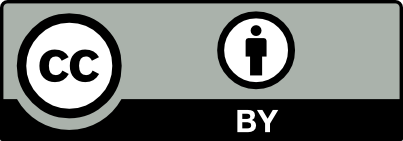Facilitating aspects and challenges for the implementation of a permanent education model for Health Surveillance
Keywords:
Professional Training; Corporate Education; Health SurveillanceAbstract
Introduction: Competencies development occurs through learning involving the acquisition of knowledge, skills and attitudes and the central challenge that emerges for organizations is to provide formal and informal learning opportunities, integrated into training, development and education programs. Objective: To identify facilitating aspects and challenges for the implementation of a permanent education model for Health Surveillance. Method: The methodology used was based on an evaluation model that includes general characterization of the external and internal context, needs and guiding components of the structuring of training processes and technical analysis of the needs assessment, planning and execution and the effects of the training and development program. Results: The facilitating aspects identified were: legal competency to promote studies and research within the scope of the SNVS; norms that emphasize the valorization of professional development; the realization of local, regional and federal forums, which specify strategies, challenges, thematic axes and training areas for the SNVS; and Anvisa’s role as a coordinator of the System, promoting educational activities in states and municipalities. The challenges pointed out were: improvement of the articulation and integration of SNVS entities with other health sectors, of Anvisa’s performance aimed at other SNVS entities; uniformity in the execution of actions; managers’ commitment to risk analysis and innovation of work processes. Conclusions: The processes for assessing needs and planning training strategies present great opportunities for improvement, especially when the various aspects considered relevant by the literature in the areas of training, development and education are used as references.
Downloads
Downloads
Published
Issue
Section
License
Copyright (c) 2020 Health Surveillance under Debate: Society, Science & Technology (Vigilância Sanitária em Debate: Sociedade, Ciência & Tecnología) – “Visa em Debate”

This work is licensed under a Creative Commons Attribution-NonCommercial 4.0 International License.
COPYRIGHT ALLOWANCE The author (s) hereinafter designated as the ASSIGNOR hereby assign and transfer, free of charge, the ownership of the copyrights related to this ARTICLE to the Vigilância Sanitária em Debate: Sociedade, Ciência & Tecnologia (Health Surveillance under Debate: Society, Science & Technology) – Visa em Debate, represented by FUNDAÇÃO OSWALDO CRUZ, established at Av. Brasil, nº 4365, Manguinhos, Rio de Janeiro, RJ, Brazil, CEP 21045-900, under the conditions set out below: (a) The terms and conditions set forth in this Agreement shall apply to the following: 1. The ASSIGNOR declares that they s(he) is (are) the author (s) and owner (s) of the copyrighted property of the ARTICLE submitted. 2. The ASSIGNOR declares that the ARTICLE does not infringe the copyrights and / or other property rights of third parties, that the disclosure of images (if any) has been authorized and that they s(he) assume(s) full moral and / or property liability for its content, before third parties. 3. THE ASSIGNOR assigns and transfers all copyrights relating to the ARTICLE to the ASSIGNEE, especially the rights of editing, publication, translation into another language and reproduction by any process or technique. The ASSIGNEE becomes the exclusive owner of the rights related to the ARTICLE, and any reproduction, totally or partially, is prohibited in any other means of publicity, printed or electronic, without prior written authorization from the ASSIGNEE. 4. The assignment is free and, therefore, there will be no remuneration for the use of the ARTICLE by the ASSIGNEE.







